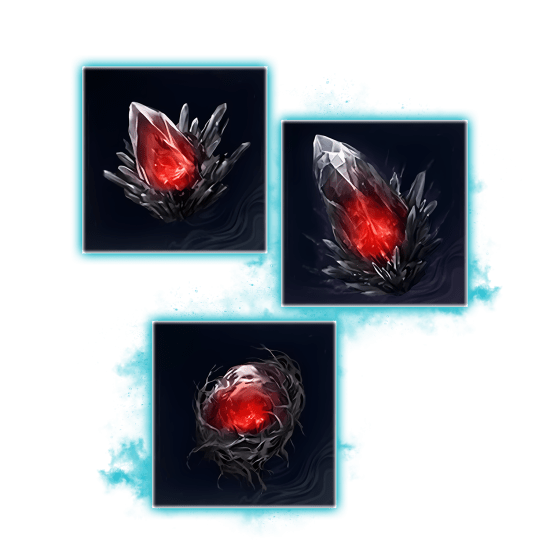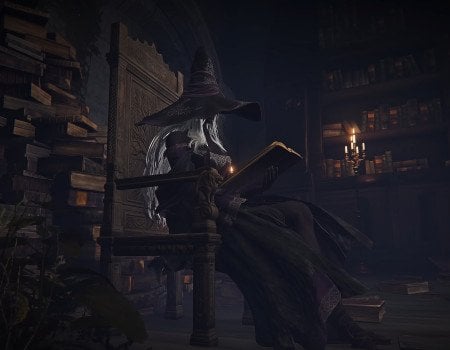This Elden Ring Nightreign Revenant guide is your complete resource for understanding one of the most unorthodox and support-oriented nightfarers in the roster. Revenant blends necromantic summons, utility skills, and powerful resurrection mechanics to control the battlefield like no one else. She’s not your typical mage or healer — she’s something more eerie, and far more tactical.
In this ERN Revenant guide, we’ll go over every part of her playstyle: how Necromancy works, what each spirit in Summon Spirit actually does, how to use Immortal March effectively, and which weapons and relics best suit her unique rhythm. You’ll also learn how to play this character, what her best build options look like, and how to get the most from her unusual but game-changing support potential.
If you enjoy playing characters that command the flow of combat through precise decisions, layered tactics, and timely interventions, Revenant is going to feel like a perfect fit.
If you'd like to get some more Murk currency and start off your expeditions a bit more prepared, you can Buy Nightreign Murk at Skycoach. Just select the amount of Murk you want, and your platform. Our veteran players will deliver the order promptly!
Read our other Elden Ring Nightreign guides:
- Duchess Guide
- Ironeye Guide
- Guardian Guide
- Wylder Guide
- Raider Guide
- Recluse Guide
- Executor Guide
- Best Classes
Note: At SkyCoach, you can Buy Elden Ring Nightreign Boost at the best prices with fast delivery. Use our special PROMO CODE (in green) hidden in this article for a 20% DISCOUNT.
Revenant Overview
 This Elden Ring Nightreign Revenant overview introduces a nightfarer whose entire combat identity revolves around battlefield control, survival management, and momentum scaling. Revenant isn’t a frontline brawler or ranged DPS — she’s a reactive support who turns every death, ally or enemy, into an opportunity.
This Elden Ring Nightreign Revenant overview introduces a nightfarer whose entire combat identity revolves around battlefield control, survival management, and momentum scaling. Revenant isn’t a frontline brawler or ranged DPS — she’s a reactive support who turns every death, ally or enemy, into an opportunity.
Lore-wise, she’s as eerie as her kit suggests. Once a noble girl from a ruined aristocratic family, her soul now possesses the body of a porcelain doll — a vessel of quiet vengeance. That backstory mirrors her gameplay: fragile, graceful, and fueled by what’s been lost. Her S-rank Faith defines her core, while her D-rank HP and Stamina demand careful movement and selective engagements. She’s not meant to trade blows — she’s meant to endure and influence.
What defines Revenant’s playstyle is her ability to passively build presence as the fight unfolds. When enemies die, she raises their ghosts through Necromancy, creating a steady trickle of pressure without spending resources. When allies fall, she doesn’t panic — she prepares. Her ultimate can bring them back and keep them from dying again, giving your team a second wind in high-pressure encounters.
In typical expedition flow, Revenant starts slow. She doesn’t dominate in early skirmishes or lead exploration charges. But the deeper you go into Limveld — when elite enemies start chaining ambushes or boss fights become chaotic — Revenant’s value skyrockets. She thrives in drawn-out, multi-phase encounters where other classes begin to run dry or break formation. Her toolkit turns collapse into recovery, and recovery into a win condition.
She also forces enemies to split their attention. Her spirit summons act as decoys, tanks, or disruptors depending on which family member is called. That lets your frontliners breathe and your ranged allies reposition. She’s the kind of nightfarer who makes everyone else more effective — not through buffs, but by destabilizing the opposition.
If you're playing solo, Revenant demands careful pathing, creative positioning, and the ability to manage threat zones using your spirits. In co-op, she’s the backbone — the difference between a wipe and a comeback. Not every team needs a Revenant to succeed, but the best ones will have her.
How to Unlock Revenant
You need to know how to unlock Revenant in Elden Ring Nightreign, if you wish to play this Nightfarer, who is, by the way, one of the top-tier characters in the game. She is one of what you may call hidden classes — unavailable by default and requiring a specific in-game sequence to access. Here's exactly what you need to do to make her playable:
Step 1: Unlock the Duchess
Before you can access Revenant, you must unlock the Duchess — another hidden class that acts as a prerequisite. To do this, defeat the first major boss of the game, Gladius. Upon victory, you’ll receive the Old Pocket Watch, a relic that’s guaranteed to drop if you win the fight. If you don’t win, you’ll need to keep attempting expeditions until the Pocket Watch appears as a random post-run reward.
Once you have the Pocket Watch, return to the Roundtable Hold and speak to the hooded lady near the central table. She’ll reveal herself as the Duchess, and this Nightfarer will be unlocked immediately.
Step 2: Buy the Bismirched Frame
With Duchess unlocked, head to the Jar Bazaar — the small merchant stall inside Roundtable Hold. A new item will now be available: the Bismirched Frame, which costs 1,500 Murk. If it took you multiple runs to get the Pocket Watch, you should already have more than enough currency to afford it.
Step 3: Speak to the Ghost
Purchasing the Bismirched Frame triggers the next step — a ghost will appear in the Hold. Speak to it, and you’ll be given the option to teleport to a hidden arena. This is your trial.
Step 4: Defeat Revenant in a 1v4 Duel
You won’t just be fighting Revenant — you’ll also be facing the three spirit allies she can summon in-game. This duel is a four-on-one battle, and it’s no joke. Her companions include a swordfighter, a giant skeleton, and a lumbering pumpkin-head. A good strategy is to go in with a ranged class like Ironeye, picking off the spirits from a distance before focusing on Revenant herself.
Target order suggestion:
- Swordfighter – fast, needs to go down first
- Giant Skeleton – high damage if left unchecked
- Pumpkin Head – slow but disruptive
- Night Idol (Revenant) – deal with her last, but beware of her wide-reaching, spinning light disc attacks
If you survive the fight and defeat all four enemies, Revenant will be unlocked as a playable Nightfarer.
That’s the full path:
- Beat Gladius
- Get the Pocket Watch
- Unlock Duchess
- Buy the Bismirched Frame
- Fight and defeat Revenant
Once you do, she becomes available for use in all expeditions — and with her ability to raise ghosts and shield allies from death, she’s absolutely worth the effort.
Revenant Pros and Cons
Revenant is built for players who thrive in controlled chaos — those who understand tempo, value survival tools, and like turning losses into leverage. She’s not the most aggressive nightfarer, and she doesn’t offer traditional healing or burst damage. But what she brings is battlefield endurance, revival power, and the ability to weaponize every fallen body around her. Revenant is for players who don’t just survive — they keep others alive, too. So what are the Elden Ring Nightreign Revenant pros and cons? Let’s take a look:
Pros:
- Revives Allies Mid-Fight – Her Ultimate Art, Immortal March, grants temporary immortality to you and nearby allies. During this window, fallen allies are left at 0 HP instead of dying, giving your team a vital chance to recover or reset during dangerous boss mechanics.
- Passive Summoning Scales with Combat – Necromancy raises ghosts from enemies you personally kill, offering free battlefield pressure. The effect doesn’t trigger automatically, so last-hitting enemies is essential — especially in co-op.
- Three Unique Summons for Tactical Flexibility – With Summon Spirit, Revenant can call one of three family spirits (DPS, tank, or stagger-based), allowing her to shift roles mid-fight based on the team’s needs.
Cons:
- Low Personal Damage Output – Revenant contributes mostly through summons and support. Without spirits active or enemies dying nearby, her personal threat level is minimal.
- High Map Awareness Required – Optimal use of her summons and ultimate requires strong spatial awareness and timing. She needs to predict collapse zones, position spirits correctly, and manage her own survivability.
- Weak Early Game – Revenant is at her weakest during the opening stages of a run, before frequent combat deaths fuel her passive and before her team starts relying on her resurrection. She scales into strength, but struggles to start strong.
Revenant isn’t for players who want to brute force every fight or top the damage charts. She’s for the tacticians — the players who want to stabilize shaky runs, support allies without sitting in the back, and manipulate the state of battle through presence rather than power. If you enjoy characters that reward precision timing, positioning, and long-game value, Revenant might be exactly who you’re looking for. BLOG20
Revenant Abilities
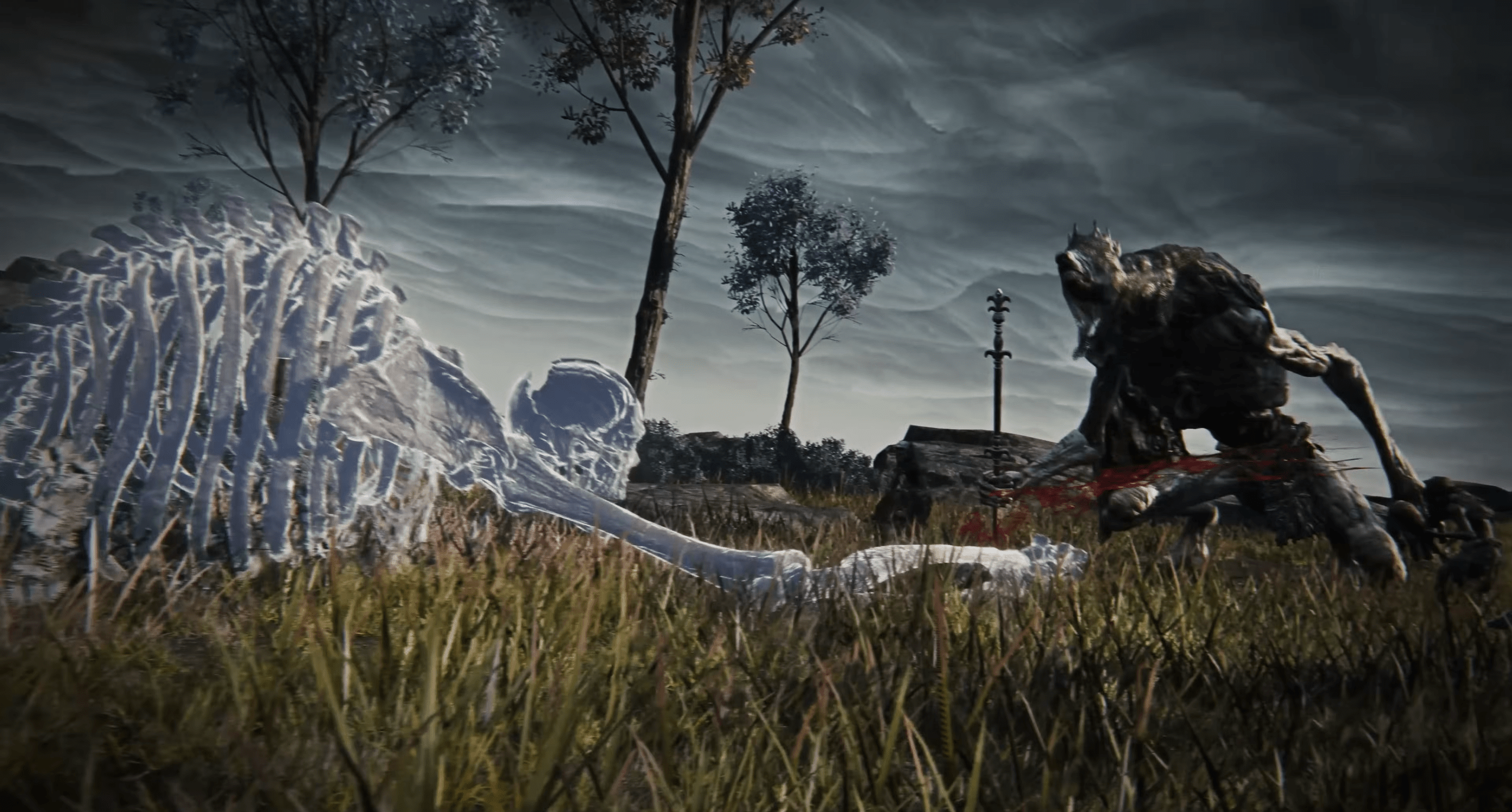
The Elden Ring Nightreign Revenant abilities are designed around battlefield presence, resurrection control, and scalable support. Unlike Nightfarers who rely on aggressive combos or brute force, Revenant operates like a spectral tactician — her kit thrives when things go wrong. Her summons act as extensions of her intent, her passive builds pressure without effort, and her ultimate doesn’t just protect — it rewrites the outcome of fights.
Her abilities aren’t about reacting quickly or outputting flashy damage. They’re about manipulating flow. Revenant is at her strongest when the field is chaotic, allies are dying, and enemies are overcommitting. Every part of her kit is designed to turn collapse into recovery, and death into momentum.
Here’s a full breakdown of her core tools:
| Ability Type | Icon | Name | Description |
| Passive Ability |  |
Necromancy | Has a chance to raise a ghost of an enemy only if Revenant lands the killing blow. These ghosts act as autonomous allies. This effect is not guaranteed and does not consume FP, but is most effective in extended fights where Revenant can finish off weaker enemies. |
| Character Skill |  |
Summon Spirit | Play a spectral lyre to summon one of three fallen family members: Helen (fast attacker), Frederick (heavy stagger), or Sebastian (stationary tank). Only one summon can be active at a time and must be resummoned if lost or left behind. |
| Ultimate Art |  |
Immortal March | Grants temporary immortality to Revenant and nearby allies. While active, downed allies are left at 0 HP instead of dying, creating a window for revival and counterattacks. Also triggers the ultimate abilities of any currently summoned spirit. Revenant briefly assumes a skeletal form during the effect. |
What makes Revenant’s ability set unique among the Nightfarers is how passive and proactive elements intertwine. Necromancy turns each skirmish into a resource generator. Summon Spirit lets her pivot roles mid-combat based on her team's situation. And Immortal March is one of the few ultimates in the game that can fully reset a losing fight if used well.
We’ll go deeper into positioning, summon choice, and ultimate timing later in the guide — but know this: Revenant’s abilities aren’t for show. They’re game-changers.
Revenant Gear

The Elden Ring Nightreign Revenant gear is built around survivability, disruption, and indirect pressure. She’s not meant to duel enemies head-on or chunk through bosses with brute damage. Instead, her loadout emphasizes fast melee trades, support scaling, and controlling enemy aggro through clever item usage. Whether you're using her to anchor a co-op team or to outmaneuver threats in solo runs, Revenant’s gear encourages intelligent engagement over raw output.
Starting Equipment:
- Spectral Claws – Fast melee weapons for close-range engagements. They let Revenant fend off attackers without needing to rely on slow windups or heavy stamina commitments — perfect for repositioning between summons or casting.
- Finger Seal – Allows the casting of supportive incantations and buffs. While not central to her damage output, this tool adds flexibility if you build around utility or healing incantations.
- White Shadow’s Lure – A tactical tool used to manipulate enemy focus. It allows Revenant to pull pressure off herself or teammates, buying precious moments to revive, reposition, or resummon.
Her starting setup clearly frames her role: keep moving, keep summoning, and don’t get pinned down.
Elden Ring Nightreign Revenant weapons like claws and daggers are very effective for her. Especially those that emphasize bleed, poison, or rapid hits — all of which pair well with her evasive playstyle and spirit-based distraction.
- Hookclaws – Fast bleed buildup makes them excellent for staggering enemies while ghosts and spirits keep them occupied.
- Raptor Talons – Strong jumping attack modifiers pair well with Revenant’s need to stay mobile while still contributing damage.
- Venomous Fang – A slow poison weapon that allows her to chip down tankier targets over time, letting her focus on repositioning and support.
- Misericorde – One of the highest crit daggers, ideal if you're reviving teammates mid-fight and then following up on staggered enemies.
- Parrying Dagger – Riskier pick, but allows Revenant to deflect in desperate 1v1 situations. Best used by advanced players who like hybrid roles.
- Scorpion’s Stinger – For status-heavy builds, this dagger’s scarlet rot buildup works exceptionally well when you're avoiding aggro and letting summons chip away at enemies.
- Blade of Calling – A thematic fit, and its ranged special attack gives Revenant a small but useful poke option when spirits are drawing aggro.
Important Note: While the Finger Seal remains viable, many top Revenant builds benefit more from Sacred Seals tied to specific incantation families (e.g., Dragon Cult, Black Flame) found in expedition churches. These seals can dramatically increase her faith-based output when paired with relics or gear boosts.
Key Takeaway: Revenant doesn’t need to overpower enemies. Her ideal gear enhances mobility, status effects, and calculated disruption — not dueling. Prioritize fast weapons, seals that boost specific spell types, and tools that support spacing, survival, and spirit uptime. Let your presence, not your DPS, carry the fight.
Revenant Best Build
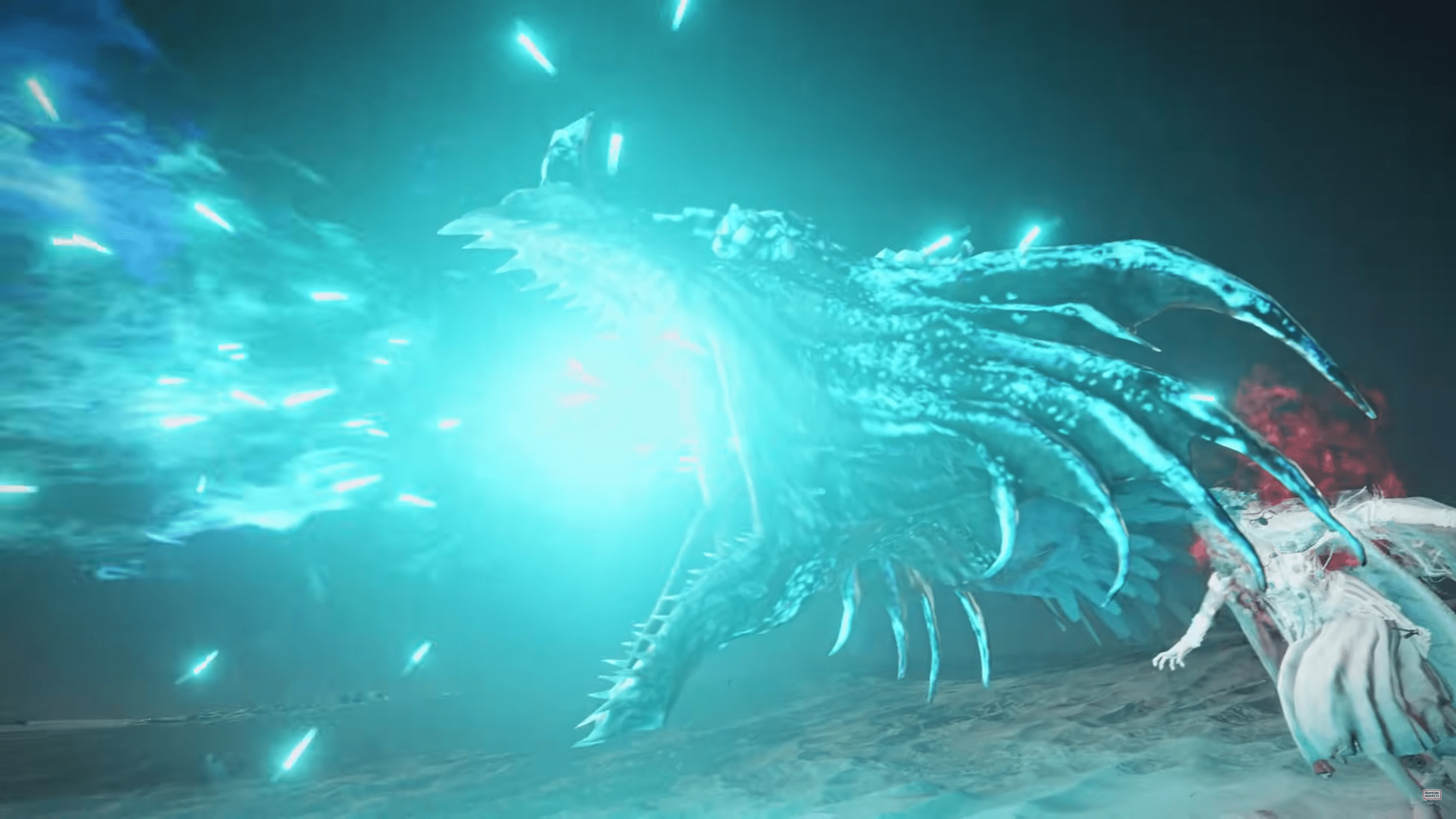
We’d normally use this section to outline the definitive Elden Ring Nightreign Revenant best build, complete with stat priorities, weapon synergies, and relic combinations designed to amplify her ghostly playstyle. However, Revenant was not part of the original test phase, and as a result, players haven’t had the opportunity to put her through full expeditions or build trials yet.
Because of that, there’s no confirmed meta setup for her just yet. We’re waiting on live-game data to better understand how her passive scales in longer sessions, which relics enhance her support role the most, and how her kit interacts with Nightreign’s scaling difficulty over three-day cycles.
Once the game is out and we've had time to experiment with Revenant across multiple runs, this section will be updated with a full breakdown. Expect a full write-up on ideal claw weapons, status-inflicting offhands, and the relics that let you push Immortal March to its limit. BLOG20
Until then, if you’re looking for builds that are confirmed and tested, check out our complete guide to the best Nightfarer builds in Elden Ring Nightreign — and keep an eye out for updates as soon as Revenant data rolls in.
How to Play Revenant in Elden Ring Nightreign
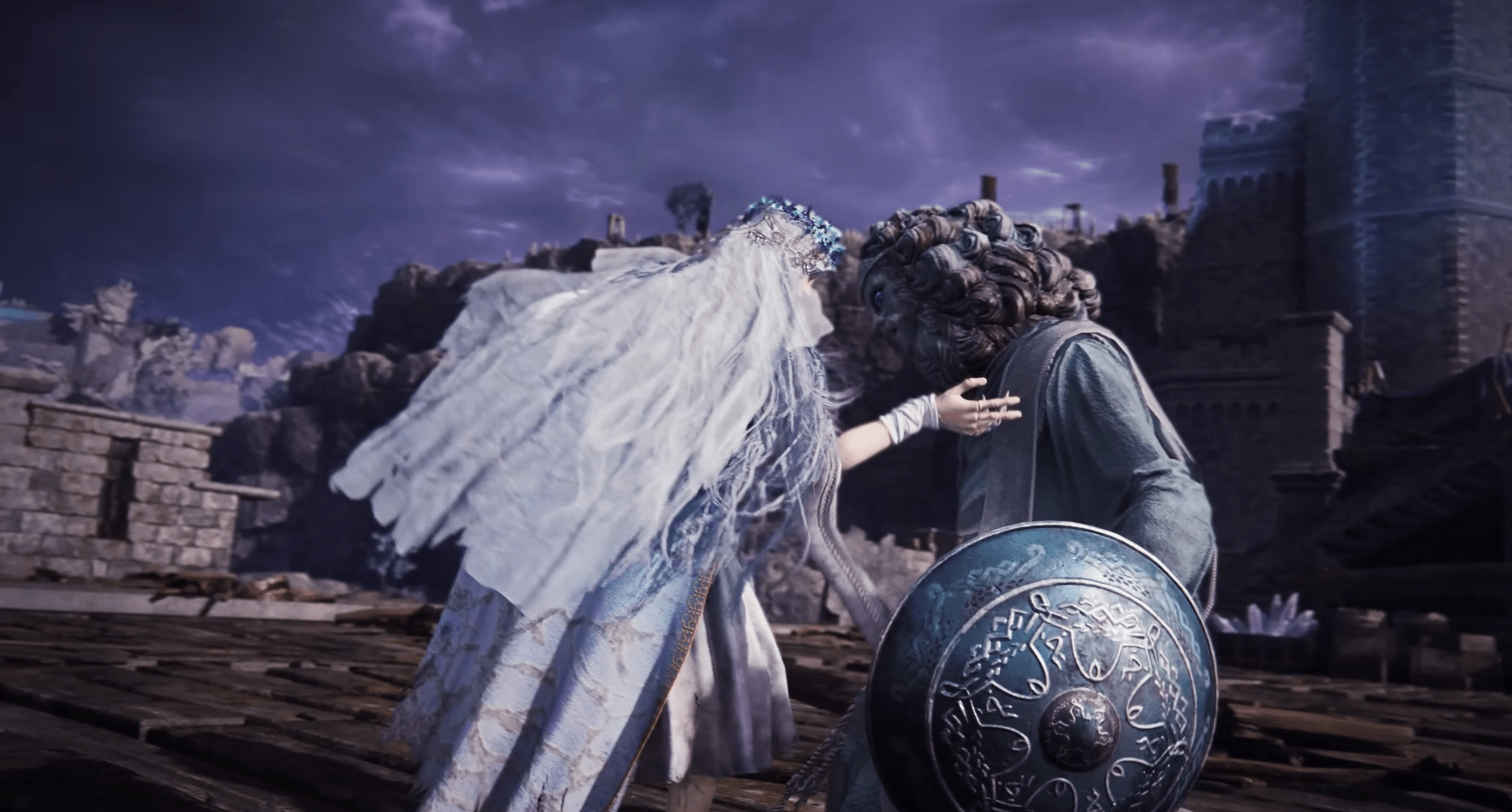
Figuring out how to play Revenant in Elden Ring Nightreign means letting go of the idea that your impact is measured in damage numbers. Revenant isn't here to carry a fight — she’s here to keep it from collapsing. Her power lies in pressure, positioning, and well-timed intervention, not in raw output.
One of the biggest mistakes new players make is expecting her ghostly allies to carry fights for them. They won’t. Necromancy, her passive, raises spirits from defeated enemies — but they’re AI-controlled, prone to erratic behavior, and can’t be counted on to focus the right threats. Instead, treat them as mobile distractions. They’re there to pull aggro, break rhythm, and create space — not to win fights on their own.
That mindset shift also applies to Summon Spirit, her active skill. Each spirit fills a clear role — Helen (DPS), Frederick (stagger), Sebastian (tank) — but none of them are direct replacements for a human teammate or reliable burst. If you summon without thinking, they’ll be wasted. The key is deployment, not repetition. Know what the fight needs, and match your summon to the moment. Your goal isn’t to overwhelm — it’s to stabilize.
Her real power spike comes with Immortal March, one of the most dramatic ultimates in the game. It doesn’t deal damage — it saves lives. Activating it grants temporary immortality to you and nearby allies, and instantly revives any fallen teammates within range. That makes it one of the strongest comeback mechanics in Nightreign — but only if used correctly. If you blow it early, you waste its momentum. If you hold it too long, your team may be too scattered or already gone.
Playing Revenant well means reading the fight like a strategist. You’re constantly asking:
- Where do I need to be when things fall apart?
- Which summon will support the fight, not carry it?
- Can I afford to wait before using Immortal March, or will a delay cost us the expedition?
And in solo play, these decisions become even more personal. You’ll need to rely on White Shadow’s Lure to pull enemies away from objectives or revive zones, rotate your summons for tempo control, and know when to disengage to buy time for your passive pressure to build.
Revenant isn’t unreliable — but she is subtle. If you're the kind of player who needs clean feedback and direct control, she might frustrate you. But if you can accept that your impact happens on a delay — through positioning, revives, and momentum control — she becomes one of the most influential nightfarers in the game.
Revenant Tips

Revenant doesn’t overpower enemies — she outlasts them. Her entire kit is built around timing, map awareness, and knowing when to shift from passive support to active control. She’s not for players who want tight combos or high burst. She’s for the ones who see the whole board — who can manage pressure, revive strategically, and stay alive when everything else breaks. These five Elden Ring Nightreign Revenant tips will help you maximize her utility and avoid the traps of reactive, summon-heavy play:
- Don’t rely on spirits to finish fights — they’re setup, not payoff
Spirits from Necromancy and Summon Spirit are too inconsistent to be treated like DPS tools. Their value lies in pulling aggro, interrupting flow, and buying time. Play around their presence, not their damage. - Time Immortal March for maximum overlap — not maximum panic
Your Ultimate shines when it revives multiple teammates and grants immortality during a dangerous window. Pop it when the field is tilting hard — not the moment someone drops. - Frederick punishes locks — not chaos
His slow, heavy swings are wasted in brawls. Drop him when enemies are staggered, focused on someone else, or locked into long animations. He thrives on clean follow-through, not openers. - Lure before reviving — not after
Use White Shadow’s Lure to pull enemies away from a downed teammate before you attempt a revive. Trying to revive under pressure without repositioning is how Revenant dies — not how she saves the run. - Use terrain to keep your passive scaling
Revenant’s best pressure comes from staying alive while Necromancy spirits accumulate. Elevation, walls, and vertical routes help you avoid aggro while the field gradually tilts in your favor. Movement is survival — and survival is strength. BLOG20
Revenant rewards planning, not reaction speed. If you want the kind of power that builds over time and pays off in critical moments, she’s one of the most rewarding nightfarers in the game. Just don’t expect her to carry the fight. Expect her to make sure you’re still in it when it counts.
Conclusion
Revenant is one of the most unconventional and tactical nightfarers in Elden Ring Nightreign. She’s not about output or control — she’s about endurance, recovery, and momentum. Her value scales with chaos: the more unpredictable the fight, the more impactful her presence becomes. Whether you’re keeping allies alive in co-op or manipulating enemy attention in solo play, Revenant brings a toolkit built for survivors, not showboats.
She’s not an easy pick, but she’s a rewarding one — especially for players who want to keep a bad run from falling apart. If you’re the kind of player who thrives under pressure and knows when to wait instead of strike, Revenant isn’t just viable — she’s essential.
F.A.Q.
Is Revenant good in Elden Ring Nightreign?
Yes — Revenant excels in high-pressure team fights and long-form encounters. Her ability to revive allies, control aggro, and build passive pressure makes her incredibly valuable, especially in co-op play.
What is the best Revenant build in Elden Ring Nightreign?
Currently unknown, as Revenant was not included in the public network test. Once post-launch data is available, we’ll update this guide with a full build breakdown based on high-synergy weapons and relics.
What does Revenant do in Elden Ring Nightreign?
She raises spirits from defeated enemies, summons unique allies with specific roles, and revives teammates with her Ultimate Art. Her playstyle focuses on survival, battlefield control, and reactive pressure.
What are the best weapons for Revenant in Elden?
Weapons that complement her mobile support role and survivability:
- Hookclaws – For fast bleed buildup
- Venomous Fang – To apply poison over time
- Misericorde – For high crit potential in clutch revives
- Blade of Calling – For ranged utility in evasive builds
What weapon should Revenant use in Elden Ring Nightreign?
She performs best with fast, lightweight weapons that allow her to reposition quickly and avoid overcommitting. Claws and daggers with status effects are ideal for her tempo and spacing needs.
What are Revenant's best skills in Elden Ring Nightreign?
- Necromancy – Provides passive pressure without consuming resources
- Summon Spirit – Lets her adapt role-by-role mid-fight
- Immortal March – One of the strongest comeback tools in the entire game when timed correctly







